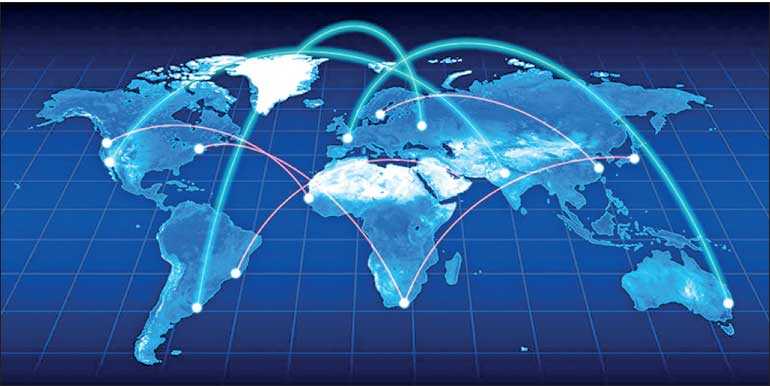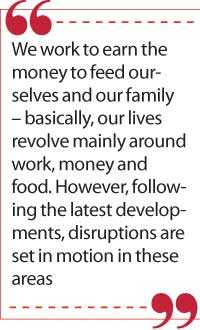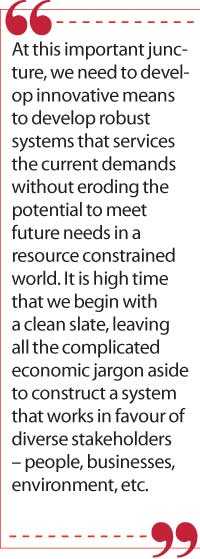Tuesday Feb 24, 2026
Tuesday Feb 24, 2026
Wednesday, 29 April 2020 02:46 - - {{hitsCtrl.values.hits}}

Even though deglobalisation has been brewing for some time – now the stage is set and the lights are on. It is a time where we need to develop robust systems in food, work culture, finance etc. that are sustainable and resilient to various shocks
By Mithula Guganeshan
It is the dawn of a new era, as the novel virus in town sends shock waves and shatters the existing global systems and structures in place. The effects have begun to ripple across various sectors – as people are forced to disperse, thus weakening the power of centralised operations and making the existing systems increasingly redundant by the day.
The COVID-19 pandemic is alarmingly notifying the fragility of the world trade and the systems that we depend upon for our livelihoods. Centralised operations in food, money supply etc. has been overburdened with the wrong priorities. In fact, the global world has been clearly gridlocked in a series of crisis one after the other from health, money, environment. 
At this important juncture, we need to develop innovative means to develop robust systems that services the current demands without eroding the potential to meet future needs in a resource constrained world. It is high time that we begin with a clean slate, leaving all the complicated economic jargon aside to construct a system that works in favour of diverse stakeholders – people, businesses, environment etc.
We work to earn the money to feed ourselves and our family – basically, our lives revolve mainly around work, money and food. However, following the latest developments, disruptions are set in motion in these areas. One needs to keep in mind that some level of creative destruction is involved whenever there is innovation, as we need to let go of our old ways to replace it with new and better avenues.
Undoubtedly, the current centralised, one-dimensional oriented systems have indeed left us wallowing in uncertainty and chaos resulting in a disastrous and highly ineffective world. However, now is the best time to pause and ask what would nature do?
Nature, through evolution, has already found the energy-efficient solution for many problems and it’s at the core of nature’s designs. Resilient and collaborative systems that complement each other, enable self-sufficiency and maximise sharing are the key to a sustainable lifestyle. Thus, actual prosperity lies in the ability to strike the right balance between centralised and decentralised decision making.
Food supply is one of the most pressing themes today besides health. Today, more and more people have begun questioning and are increasingly concerned about how the food we consume is produced. In fact, as highlighted above, COVID-19 has emerged as a catalyst for a self-reliant living as the fragility of centralised operations are exposed.
Even though deglobalisation has been brewing for some time – now the stage is set and the lights are on. It is a time where we need to develop robust systems in food, work culture, finance etc. that are sustainable and resilient to various shocks.
Concluding thoughts
We are on the cusp of transformation and it is time to shift away from the current pyramid model which promotes unfair distribution of wealth, power, information and resources. In this new era, countries and individuals need to be self-sufficient where they are independent and are able to stand on their own – while also collaborating with each other towards similar goals. Thus, retaining individuality while also ensuring diversity with a multi-power outlook rather than a single-focused dominance.
The key takeaway for businesses, economies and individuals is the importance of building robust, resilient systems to absorb the disturbances while retaining their basic function and nature. It’s time to imagine and build a better world that is collaborative, supportive, self-reliant, effective and balanced.
Collaborative resilience is the future ahead and it will find its way.